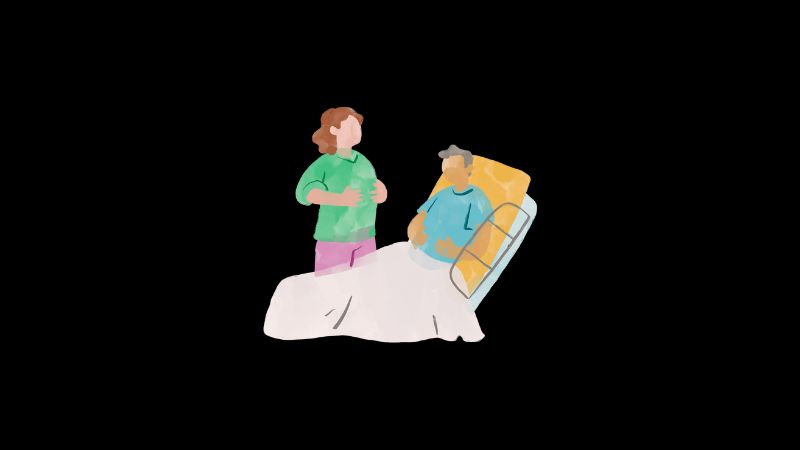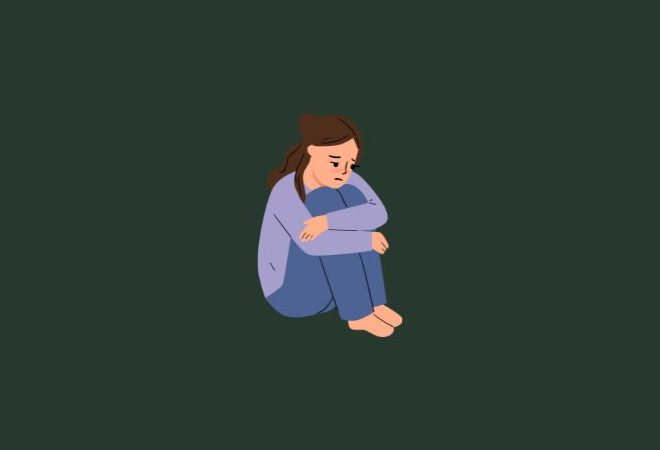
5 Proof-Primarily based Psychological Well being Applications For The Terminally Ailing
Affiliate hyperlink discover: As an affiliate of BetterHelp and different third-party distributors, We’ll obtain compensation if you happen to make a purchase order utilizing the hyperlinks offered on this web page. For extra info, go to our disclosure web page.
Final Up to date on April 22, 2025 by Randy Withers
Going through a terminal analysis brings profound emotional and existential challenges. It’s not simply bodily signs that demand care—but additionally concern, grief, anxiousness, and the lack of identification and which means. Sufferers nearing the top of life usually wrestle with tough questions: What has my life meant? How do I deal with dying? Who am I now?
Psychological well being assist at this stage is essential—however not all approaches are equally efficient. Happily, a number of research-backed applications have been developed particularly to fulfill the emotional and non secular wants of terminally unwell people.
This text introduces 5 of probably the most revered and evidence-based therapeutic applications designed to enhance psychological well-being and high quality of life in folks with life-limiting sickness. These interventions prioritize dignity, which means, emotional security, and genuine connection—providing greater than symptom reduction. They supply a pathway to therapeutic, even when treatment is now not attainable.

Well being Applications for the
Terminally Ailing
1. Dignity Remedy
“Developed by psychiatrist Dr. Harvey Chochinov, Dignity Remedy stands as some of the revered psychological interventions for terminally unwell sufferers.”, says Early Entry Care, an organization that works with sufferers getting expanded entry to medical trials for the terminally unwell.
Dignity Remedy is a short, structured intervention that helps terminally unwell sufferers replicate on their lives, values, and accomplishments. A educated therapist or clinician conducts a semi-structured interview, asking questions like:
- What are your most essential accomplishments?
- What would you like your family members to recollect most about you?
- What knowledge would you prefer to go on?
The dialog is recorded, transcribed, and edited right into a legacy doc the affected person can share with household or preserve for themselves. This course of usually helps sufferers reaffirm a way of goal and management at a time when each really feel diminished.
Research have proven that Dignity Remedy can cut back emotional misery and enhance end-of-life experiences for each sufferers and their households. It’s broadly utilized in palliative care settings and is accessible to sufferers with various cognitive and bodily skills.
This remedy is very efficient for sufferers experiencing lack of identification, non secular anguish, or fears about being forgotten.
2. Which means-Centered Psychotherapy (MCP)
Which means-Centered Psychotherapy was developed by Dr. William Breitbart and colleagues at Memorial Sloan Kettering Most cancers Middle. Impressed by the work of Viktor Frankl, MCP helps terminally unwell sufferers preserve or rediscover a way of which means and goal—whilst bodily decline progresses.
Delivered in both particular person or group settings, MCP explores:
- Sources of which means (e.g., creativity, love, legacy)
- Life tales and turning factors
- How struggling might be endured when life retains which means
Sufferers are invited to replicate on how they’ve lived—and the way they wish to proceed residing, regardless of their analysis. Analysis has proven that MCP can cut back emotions of despair, hopelessness, and non secular misery, and enhance general well-being in superior most cancers sufferers.
MCP is especially useful for people fighting existential anxiousness, despair, or a lack of private coherence.
3. Acceptance and Dedication Remedy (ACT)
Acceptance and Dedication Remedy (ACT) is a mindfulness-based, values-oriented strategy that helps people settle for their painful ideas and feelings slightly than combat in opposition to them. Whereas ACT is used throughout many medical populations, it has proven rising promise for the terminally unwell.
In end-of-life care, ACT helps sufferers:
- Make room for concern, grief, or anger with out being overwhelmed
- Reconnect with deeply held values, even when bodily functioning declines
- Focus consideration on the current second with self-kindness
ACT doesn’t try to “repair” emotional ache. As a substitute, it teaches that ache is a part of the human expertise—and that which means and goal can nonetheless be present in every second.
In hospice or palliative settings, ACT can assist sufferers shift from control-based coping (“how do I make this go away?”) to values-based residing (“how do I keep current with what issues now?”).
4. Mindfulness-Primarily based Stress Discount (MBSR)
Developed by Jon Kabat-Zinn, MBSR is an eight-week program that teaches mindfulness meditation, physique scanning, and delicate motion to cut back stress and enhance emotional regulation. It has been broadly used with most cancers sufferers and others dealing with persistent or terminal sickness.
MBSR affords instruments to:
- Scale back anxiousness and bodily stress
- Enhance sleep and focus
- Observe ideas and feelings with out judgment
- Domesticate present-moment consciousness, even amid uncertainty
Although the total 8-week program could also be tough for the terminally unwell, shorter or tailored variations have been proven to be efficient. Guided meditations, transient every day practices, and even conscious respiratory classes can provide significant reduction.
MBSR could also be particularly precious for sufferers experiencing anticipatory grief, panic, or racing ideas associated to dying.
5. Managing Most cancers and Dwelling Meaningfully (CALM)
CALM is a semi-structured psychotherapy developed for people with superior most cancers. It focuses on 4 key domains:
- Symptom administration and communication with healthcare suppliers
- Modifications in self and relationships
- Non secular well-being and meaning-making
- Getting ready for the long run, together with end-of-life considerations
CALM is designed to be versatile and patient-led. Therapists tailor classes to the person’s priorities, utilizing each supportive and insight-oriented methods. Research recommend CALM can cut back depressive signs and improve existential well-being.
This program is good for sufferers navigating advanced emotional terrain, household tensions, or problem dealing with mortality instantly.
Closing Ideas
Terminal sickness adjustments every part—bodily, emotionally, and spiritually. Whereas no program can erase concern or disappointment totally, these evidence-based therapies provide a solution to face loss of life with extra readability, much less struggling, and deeper connection.
In the event you or somebody you’re keen on is navigating a life-limiting analysis, know that emotional assist isn’t a luxurious—it’s a part of care. Applications like Dignity Remedy, Which means-Centered Psychotherapy, ACT, MBSR, and CALM usually are not about fixing the unfixable. They’re about reclaiming company, making peace with uncertainty, and discovering which means within the moments that stay.
Let me know if you happen to preferred this put up. Your suggestions is essential!


